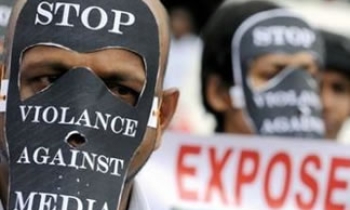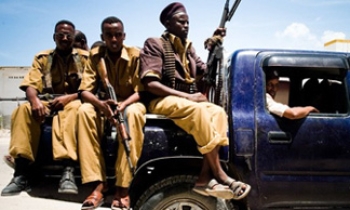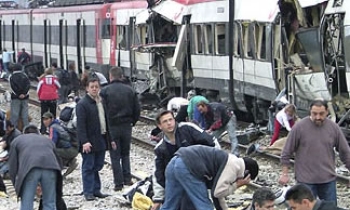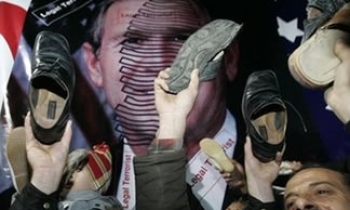MUMBAI (Reuters) - Round-the-clock news coverage of the Mumbai attacks has made Indians nervous but analysts said on Friday it was also stoking anti-Pakistan public opinion and risks shaping policy before elections due by May.
Psychiatrists in India's financial hub are reporting increased cases of panic attacks and insomnia after last week's attacks, telecast live into millions of homes, by Islamist militants who killed 171 people.
"There was no sense of balance or reasoning. The coverage was so jingoistic and nationalistic, they've pushed public opinion on Pakistan to a point of no return," said Atul Phadnis, chief executive of consultancy Media e2e.
In the days since the attacks, the Indian flag is often used by broadcasters as a visual backdrop, with viewers' text messages expressing anger at politicians or Pakistan ticking across the bottom of screens.
Pakistan has condemned the attacks and denied any state involvement, as well as vowing to help the Indian probe.
A big protest in Mumbai on Wednesday, organised by text messages and on Internet social network Facebook and radio, was proof of growing media influence on opinion, said B. Manjula, chair of the Centre for Media and Cultural Studies at the Tata Institute of Social Sciences.
"Everyone is being led to believe that by lighting a candle or carrying a poster they've done their part as a dutiful citizen without questioning whose opinion they are pandering to ... their actions only make for great visuals for TV," she said.
There are more than 60 English and regional-language news channels fighting for the attention of 80 million Indian homes.
Most were launched in the last three years when a booming economy helped drive advertising revenues. But the fierce competition has also meant that less experienced journalists have been thrust into the field, Manjula said.
"This is a complex issue with various dimensions to it. Simply reducing it to 'politicians are villains' and 'Pakistan is the enemy' without discourse or debate is a deep failing of the media, but it does influence public opinion," said Manjula.
Across the border, the Pakistani media decried what it saw as the undue haste with which India blamed Pakistan for the assault, but is not urging the government to take a particular line.
The liberal Daily Times newspaper said in an editorial on Friday the distrust and hostility engendered by "black-and-white" media opinion on both sides would block proper communication.
The News, Pakistan's biggest English-language newspaper, said in an editorial on Thursday an outbreak of jingoism in Indian media was being matched by only a slightly less severe one in Pakistan.
"We need the media to tread a cautious line, support our government in its efforts to take the heat out of the situation and not to inflame our already tinder-box population," it said.
(Additional reporting by Robert Birsel in ISLAMABAD)









